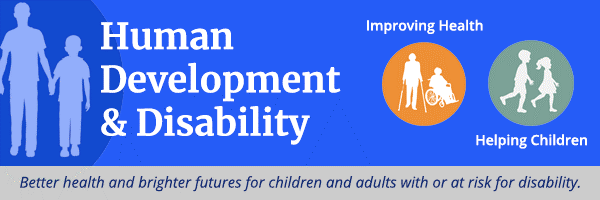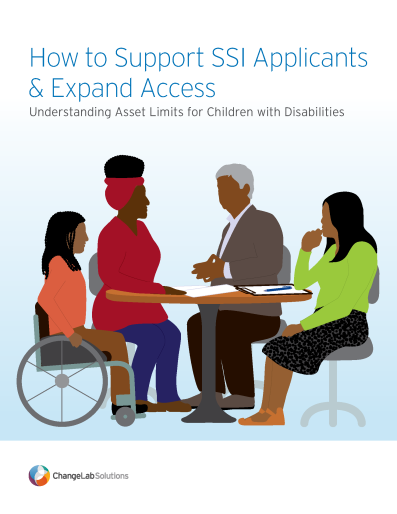DHDD Newsletter – October 2021

A Note from the DHDD Director:
Dear DHDD Partners,
I hope you are all doing well and staying healthy. Cooler weather has arrived in many parts of our country, along with the changing color of leaves and the emergence of pumpkins! As noted in September’s newsletter, Dr. Georgina Peacock is serving on a detail as Acting Director for the Immunization Services Division (ISD) at CDC’s National Center for Immunization and Respiratory Diseases. I will be acting Division Director during her detail and appreciate your continued support and collaboration!
The FDA’s Vaccines and Related Biological Products Advisory Committee (VRBPAC) met this week to discuss vaccines for children ages 5 to 12. We are expecting more information about vaccine approvals and dissemination for children within the next few days. Please continue to visit the main CDC page (cdc.gov) for more information on pediatric COVID-19 vaccines.
Sincerely,
Blythe
In the Spotlight
Act Early COVID-19 Response Funded for a Second Year to Support Early Childhood Systems

The Act Early Response to COVID-19 project has been awarded a second year of funding through a cooperative agreement with the Centers for Disease Control and Prevention (CDC) and the Association of University Centers on Disabilities (AUCD).
Forty-two Act Early Response Teams each led or co-led by an Act Early Ambassador, will continue to provide support to families with young children across the country. Teams are working to 1) maintain the established state/territory teams that include key early childhood partners, 2) develop, implement, and evaluate a plan to improve early identification of developmental delay/disability that addresses all 4 “steps” of early identification (developmental monitoring using “Learn the Signs. Act Early.”, developmental screening, referral, and receipt of services) AND supports families in transitioning from step to step to reduce loss to follow up and 3) promote resiliency skills and behaviors among children, families, providers, and early childhood systems. Learn more about your state or territory’s Act Early Response Team.
New Resources
Resources to Help Support Developmental Surveillance
CDC’s Learn the Signs. Act Early. (LTSAE) program has collaborated with the American Academy of Pediatrics (AAP) to develop two new free resources – a Family Friendly Referral Guide and a Clinician Guide to support developmental surveillance.
The Family Friendly Referral Guide is a fillable PDF that focuses on supporting families and caregivers whose child has a developmental concern and illustrates the importance of following through with developmental referrals. Pediatric practices can customize this guide with information about local referral resources and use the guide to support families and caregivers in understanding what to do if a developmental concern has been identified.
The Clinician Guide highlights the developmental surveillance component of identifying strengths, risks, and protective factors. Only 30% of families/caregivers with children under 5 years report being asked by a health care provider if they had any concerns about their child’s learning, development, or behavior according to data from the 2016 National Survey of Children’s Health. This resource will help pediatricians recognize the value of established patient relationships before, during and after the development process.
For more resources, visit AAP’s Developmental Surveillance and Screening page and LTSAE healthcare provider page.
Not Just ADHD? Helping Children with Multiple Concerns

October is attention-deficit/hyperactivity disorder (ADHD) awareness month. This year’s theme is “Reframing ADHD, Discovering New Perspectives”. Many children who have ADHD have other concerns or disorders. For some children, symptoms that look like ADHD can be better explained by another diagnosis. Recognizing symptoms of ADHD and other disorders and finding ways to help children can be a challenge for families. Read more about how to help children who have ADHD and other disorders.
CDC funds the National Resource Center on ADHD (NRC), a program of CHADD—Children and Adults with Attention-Deficit/Hyperactivity Disorder. Visit the NRC for more information and resources for children with ADHD and their families. The NRC also operates a call center (1-866-200-8098) with trained staff to answer questions about ADHD and related disorders.
New Aging and Health Matters Podcast Episode, “Increasing Arthritis Prevalence among US Adults”

Listen to “Increasing Arthritis Prevalence Among US Adults,” a CDC’s Aging and Health Matters podcast episode featuring Dr. Kristina Theis, epidemiologist and lead author on the new Morbidity and Mortality Weekly Report study on arthritis prevalence. Dr. Theis discusses the report and its findings, including the increase in U.S. adults with arthritis, how adults with arthritis can manage their symptoms, and how providers, public health professionals, and community members can help.
Expanding Supplemental Security Income (SSI) Access for Children with Disabilities

Supplemental Security Income (SSI) is a cash benefit program for individuals — both children and adults — who have a qualifying disability. Children and families who apply for this benefit must meet disability, income, asset, and immigration status requirements to begin receiving benefit payments.
A new fact sheet explains how policymakers and other stakeholders can navigate SSI asset limit requirements to improve the number of children with disabilities who can access this benefit.
Publications
State-specific prevalence of current e-cigarette use by disability status and disability type-United States, BRFSS 2016-2018

Findings from a new CDC study show that e-cigarette use is higher among adults with disabilities than those without disabilities. This study highlights the importance of including people with disabilities in public health activities that monitor and address their use of tobacco products. These findings also reinforce the need to prevent tobacco use in any form, including e-cigarettes, among young adults with disabilities.
Prevalence of Arthritis and Arthritis-Attributable Activity Limitation — United States, 2016–2018
A new CDC report found 58.5 million U.S. adults who have arthritis and 25.7 million U.S. adults whose activities are limited because of arthritis. The study provides new estimates for the prevalence of arthritis and arthritis-attributable activity limitations. More widespread dissemination of existing, evidence-based, community-delivered interventions, along with clinical coordination and attention to social determinants of health, can help reduce widespread arthritis prevalence and its adverse effects.
Helpers help people with intellectual and developmental disabilities and hypertension to understand their condition and the need to adhere to anti-hypertensive medication

A new CDC-funded study found that caregivers of adults with intellectual and developmental disabilities (IDD) had significant improvements in knowledge about hypertension and the importance of refilling medication after receiving an educational intervention. These findings underscore the importance of including caregivers of adults with IDD in the management of chronic disease for those under their care.
Healthcare Access and Utilization for Young Adults with Disability: U.S., 2014–2018

Findings from a new CDC study show that young adults with disability experience barriers to healthcare access and are at risk for not receiving needed services as they transition from pediatric to adult health systems. This study examined patterns of healthcare utilization for young adults with disability and potential barriers to receipt of care. Findings highlight gaps in healthcare access for young adults with disability.
Audiologist Perception on Reporting Hearing Assessment Results to State Early Hearing Detection and Intervention Programs

A new CDC publication describes an evaluation conducted by 39 state EHDI programs on the acceptability of the reporting process and system audiologists used when reporting hearing test results to the EHDI program. It also describes the barriers encountered during reporting. Because of the wide variety of barriers faced by audiologists, multiple strategies to improve the reporting process would likely be beneficial.

